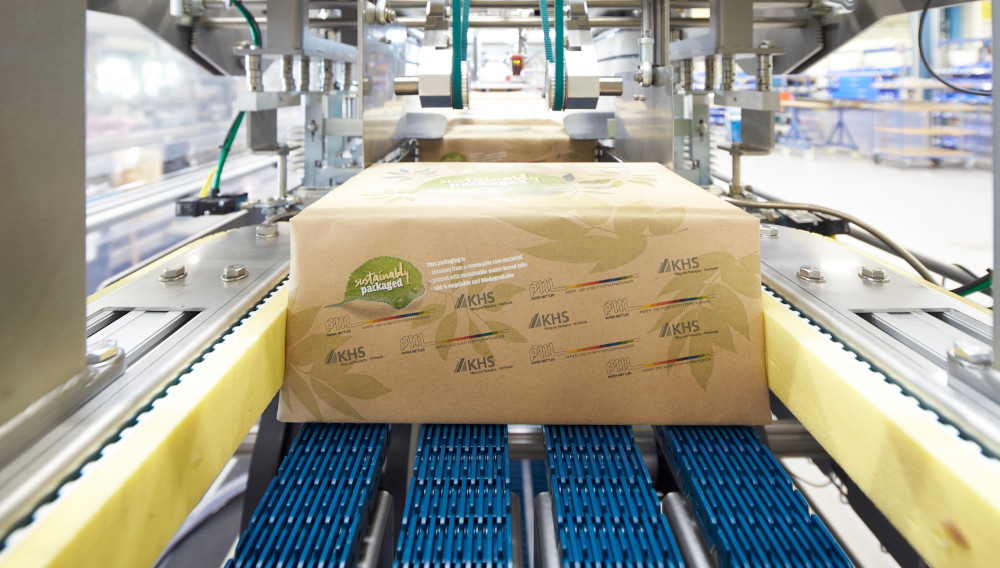Paper not film: ecofriendly can packaging system
New Development | The KHS Group, Dortmund, Germany, has added a further environmentally-friendly system to its portfolio. With its tried-and-tested Innopack Kisters tray packers the systems supplier now enables cans to be wrapped in paper.
The new technology provides an alternative to shrink film or wrap-around cartons. Regarding stability the results are the same yet compared to cardboard costs are lower as less energy and fewer materials are used. With a few minor adjustments existing machines can also be converted to the new setup.
Alternatives for customers
The idea of using paper as a secondary packaging is not new; KHS first experimented with this around 20 years ago. “Back then, this technology didn’t catch on, however, as paper was a cost-intensive raw material and wrapping containers in film yielded better results regarding stability,” says Karl-Heinz Klumpe, packaging product manager at KHS. The beverage industry thus opted for different systems and solutions. “Our customers now want alternatives to the usual packaging systems such as film. These should be as ecofriendly as possible,” he continues. To this end, the paper wrapping has now been developed together with an international beverage producer. This type of pack can replace shrink film or wrap-around carton packaging for transportation or sale on packs of 12 or 24 cans in the high-capacity range of up to 90,000 cans per hour.
Few process adjustments thanks to modular machine design
In order to wrap cans in paper instead of film just a few adjustments are needed to the Innopack Kisters tray packer, a machine well established on the market. “KHS is increasingly supplying modular systems and solutions that enable and ease the appropriate conversions to our machines. In this case, we’ve simply reengineered the process module for folding and wrapping,” Klumpe explains.
Costs are also cut by the new paper pack: compared to a wrap-around carton by up to 15%, with outgoings about the same as for film. Overheads are also considerably reduced by the low energy consumption of about 14 kWh an hour at 80 cycles a minute. The folding process is such that the pack is also fully enclosed. “In contrast, dirt can get into film packs with small side openings. Over long distances especially paper has the clear advantage when it comes to protecting the pack,” Klumpe states.
Keywords
Source
BRAUWELT International 2020
Companies
- KHS GmbH, Bad Kreuznach, Germany


